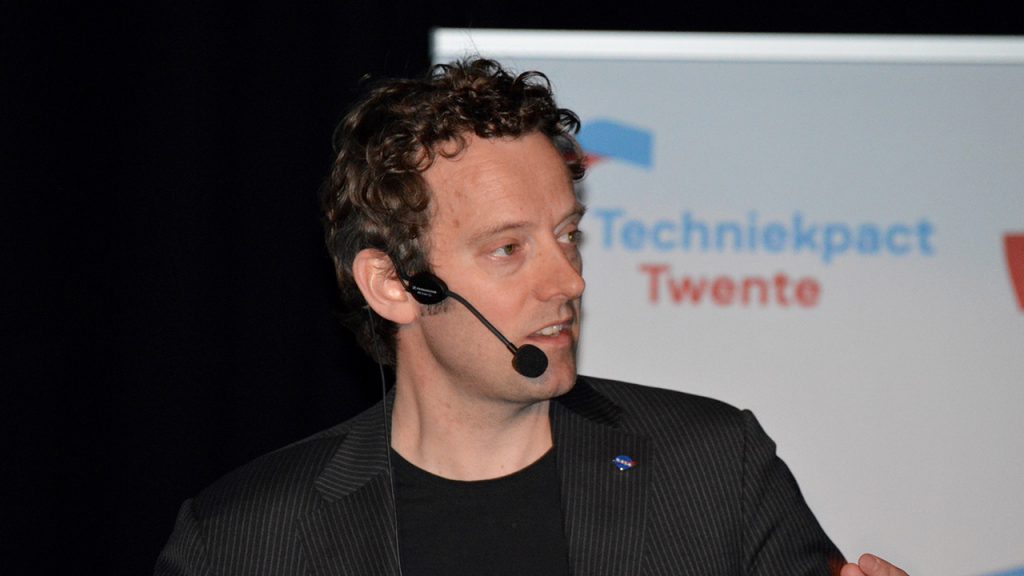What is the role of new space startups? How can they help to shape the sector? And what challenges must they overcome?
Spaceoneers spoke to Erik Laan, Founder of Eye On Orbit, who with his one-man company offers consultancy to the space sector. As a keen follower of space activities he uses his expertise to challenge some existing ideas that can in turn help innovate the sector.
Spaceoneers: Describe a little about your work and what you do.
Erik Laan: Eye On Orbit is my one-man company. I do three things. The first is that I maintain the Space Missions Manifest database on the future of what I think is going to happen in space. I have my software look for all the upcoming space missions where I provide customers the ability to interact with the database to get the insight that they are looking for.
The Space Missions Manifest is also a portal to my second activity, which is the freelancer part of my job. I give technical consultancy to the space industry in the Netherlands but also worldwide, specifically on earth observation and instrumentation. Like many insiders, what I see happening in the space industry is a drive to smaller satellites; so, no more Envisats. There is also a lot of drive from small companies and upcoming countries that want their own satellite and are not interested anymore in sending satellites up for national prestige. They really want to do something with it and want to do it themselves. There are a lot of opportunities in earth observation. I help upcoming countries with instrumentation concepts based on optomechanical and systems engineering. This is the largest part of my business.
The third part is more of an evangelistic side – I do outreach and go to schools and events. It’s not a large and profitable customer base but I do enjoy it to raise awareness with people. Amongst other workshops, I developed a game called Interplanetary Abundance that I play with any audience. There are shares each player gets, which are shares in extra-terrestrial resources such as lunar helium III, Martian water, methane and metals from asteroids, as well as launcher access. In a timeline stretching this century, the different shares become more and less valuable. The game appeals to- and challenges an exponential mindset.
Spaceoneers: How did you get started with your own business?
Erik Laan: I prefer to work with companies that are outside of the institutional arena such as agencies, as this isn’t necessarily the place where the disruption is taking place. These agencies are doing some great work and laying the groundwork for companies. But I prefer to move faster.
I like working for myself, taking opportunities for myself but definitely need to work in a team from time to time. You go through ups and downs but I have got through the first three critical years. Initiatives such as my outreach activities wouldn’t be possible outside of this.
Spaceoneers: Who and what are your influences?
Erik Laan: Originally my dad took me out stargazing. That was the initial spark, I think. From that moment I said “I want to be an astronaut”, so I applied but I like to say I am too tall (1.97m). I don’t fit in a Soyuz! I’m not sure I would make a good astronaut but I would look out the window and enjoy the flight.
Starting as an entrepreneur I think Arno Wielders (Mars One) has been an important influence. Also Fred Kamphues who was a freelancer at TNO during my time there, and he now works in the US on the 30-metre telescope design. I think he also influenced my thoughts on becoming an entrepreneur. Also Murat Durkut from InnoSpace is an inspiring person. I work with him in quite a number of projects.
Spaceoneers: What are the biggest challenges to starting your business?
Erik Laan: I’d say insecurity that basically presses on your shoulders. We all need customers in the end, who pay your bills. The knowledge I built up with what’s going to happen in space, that really started me. My network with International Space University (ISU), that I could reach out to and find opportunities helped and also my network in the Dutch industry. It’s still tough as there’s always the short horizon. I don’t know what I’ll be doing in the next 3-4 months but sometimes that can be exciting. I always have to find new customers. But the insecurity can appeal to some sort of inner drive for you to survive. And that makes you feel alive!
Spaceoneers: How do you get customers and get known?
Erik Laan: I use social media a lot, namely Twitter and LinkedIn. I see these are the influencers to my website and specifically the Space Missions Manifest. But you also have to talk to people a lot. Sometimes you get customers in one minute then sometimes it takes months. Everything in between, you have to deal with.
Spaceoneers: What do you enjoy the most in your job and how do you stay motivated?
Erik Laan: I like to stay in touch with technology in earth observation and space science. I particularly like technical work and do detailed calculations. I worked as a manager for a research & development programme, which was a nice experience but I realised management was not my strength, I get a boost from some hard-core calculations and having hardware in your hands based on these. As a manager you don’t get to enjoy that so much. It’s easier working for yourself, I guess, as you can do the things you enjoy the most.
Spaceoneers: Which technologies and trends do you think will be the biggest drivers?
Erik Laan: I think the push for Copernicus and the Sentinel missions is quite exciting. I am working with companies involved in these programmes, and specifically the atmospheric and remote sensing capability.
What I see right now is this trend towards to smaller satellites, namely nanosatellites. I think that is good but you can’t get so big an aperture, which is needed for higher resolution spectral measurements. In time I see a trend coming towards slightly bigger, microsatellites (50-100 kg) with earth observation, telecommunications and navigation on one platform. These constellations like OneWeb and LEOSat will happen but they also have a lot of overcapacity. If you can make them a little bit bigger and put EO observation instruments on them, you can also download the data that they measure above populated areas where they also do telecommunication services, so it would give added value to those satellites. I think this will eventually happen.
Spaceoneers: There are lots of space activities in the Netherlands. There is, of course, the biggest ESA centre (ESTEC) in Noordwijk. But what about support for space startups? Do you think the accelerators such as ESA BIC and the NL Accelerator will help businesses like yourself?
Erik Laan: I must admit, I ask myself sometimes, what do space companies do in addition to the ESA programme? I think many lack entrepreneurship and finding new opportunities. So, I think companies need to strike a balance. I’d say the Dutch industry isn’t really entrepreneurial and needs to change in attitudes. There is unfortunately a status quo keeping companies at a certain activity level, which has been stable over many years and there aren’t really so many plans to grow beyond this.
Spaceoneers: What tools do entrepreneurs like yourself need? How can businesses spur innovation?
Erik Laan: What lacks in Europe at the moment are risk investors. In the US, companies get seed A funding, they do something and it fails. Perhaps it’s a superficial side of it but you don’t really see this in Europe; we’re more conservative. We assume sometimes that if a company gets a lot of money it will be a success. Failure here is not seen in a positive way. In the US, I think you have to show your failures more. We need investors that want to take risks and we need entrepreneurs with more good plans.
Spaceoneers: What is the role of existing companies to modernise the sector?
Erik Laan: I just present my view. I can do that without worrying about a company I work for, as an independent. I tell them they are too slow and many agree.
Spaceoneers: What advice would you give to aspiring space startups?
Erik Laan: I would say just to do it, and try to see where it goes. It is a great adventure. To make money in the space business is not trivial. There is a much bigger market for non-space but that does not motivate me. I think you need the passion to keep going against all odds.
Spaceoneers: What would you say makes you a ‘Spaceoneer’?
Erik Laan: That’s a tough question. In a relative way, I’d say that in the Netherlands, I’m perhaps one of only a few people who are doing this. I think also I have a particular mindset and passion, which you need to stay motivated.
Follow Erik Laan here on LinkedIn, and on Twitter @eriklaan @EyeOnOrbit

